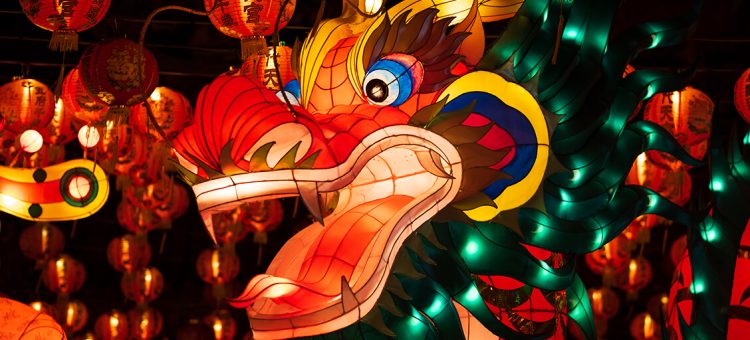Key Findings:
- Workers who are Asian American or Native Hawaiian and Pacific Islander (NHPI), facing a lack of leadership representation and support at their workplaces, seek out employee resource groups as vital spaces for connection.
- In the wake of mass shootings in California, Asian Americans are more likely than anyone else to worry about being the victim of a mass shooting.
- Asian and Black Americans are the most supportive of stricter gun control laws, and equally likely to say gun violence is a bigger issue now than a year ago.
- Native Hawaiian and Pacific Islander Americans experience some of the highest levels of hate crimes across racial groups, with 10% of NHPIs and 6% of Asian Americans having experienced physical violence based on their race or ethnicity in the last 12 months.
- Fears of school bullying based on their child’s gender, sexual orientation, or race/ethnicity are highest among Asian American parents.
- Asian Americans and NHPIs remain hesitant to report hate crimes to law enforcement authorities, unchanged from prior years.
- Like other communities of color, Asian Americans and NHPIs are less likely to seek out support from mental health professionals when compared to white adults.
- Support for abortion rights is higher among Asian American, NHPI, and Black individuals than among white or Hispanic Americans.
Asian American workers, feeling unsupported and underrepresented in leadership positions at their workplaces, seek out employee resource groups as vital spaces for connection
Asian American workers are less likely to feel represented in leadership positions at work: only 26% ‘strongly agree’ that there are others like them in leadership positions at their workplace or that they feel supported in pursuing leadership opportunities, compared with 41% and 43% among workers overall. Additionally, Asian American workers report skewed perceptions about their roles from others at work: 3 in 10 (30%) say others have made assumptions about the type of work they do based on their race or ethnicity, a comparable rate to Black workers (31%), but higher than white (15%), Hispanic/Latino (22%), NHPI (25%), and Native American/Alaskan Native (26%) workers.
Some 16% of Asian American workers (and 18% of NHPI workers) participate in employee-led groups or employee resources groups (ERGs) based on their racial or ethnic background, twice the rate of workers overall (8%), exceeding the participation among white (6%), Black (13%), and Hispanic/Latino workers (10%), and on par with Native American/Alaskan Native workers (18%).
- Connecting with others is the leading reason for Asian American workers joining such groups (54%), followed by professional growth opportunities (44%), raising awareness and inclusivity within their organization (39%), and creating impact (36%) or seeking our resources and support (35%). They are also more likely to join ERGs to connect with others, compared with other racial groups (54% vs. 46% for Black workers, and 36% for white and Hispanic/Latino workers).
- Participation in race- or ethnicity-based ERGs is higher among younger workers age 18-34 compared with workers age 35-64:
- 21% of Asian American workers age 18-34 are part of an employee resource group at work, compared with 14% age 35-64).
- 19% of Black workers age 18-34 are part of an ERG, vs. 10% among those age 35-64.
- 15% of Hispanic/Latino workers age 18-34 are part of an ERG, vs. 7% of those age 35-64.
- White workers have the largest difference by age: 13% of white workers age 18-34 are part of an ERG, vs. 3% of those age 35-64.
- Despite higher participation in ERGs, Asian American and NHPI workers continue to feel excluded from DEI initiatives at work: about one in four Asian American (24%) workers and NHPI (26%) workers say they have ever felt excluded from discussions about diversity and inclusion at their workplace.
- Black and Native American/Alaskan Native workers are slightly more likely to have ever felt excluded from DEI conversations at work (28% and 27%), compared to 17% of white workers, and 18% of Hispanic/Latino workers.
In the wake of mass shootings in California, Asian Americans are more likely than anyone else to worry about being the victim of a mass shooting
Asian Americans and NHPIs remain hesitant to report hate crimes to law enforcement authorities, unchanged from prior years.
- 29% of Asian Americans say they are ‘very comfortable’ reporting a hate crime, compared to 30% in 2022 and 2021.
- 37% of NHPIs are ‘very comfortable’ reporting a hate crime in 2023, compared to 34% in 2022, and 35% in 2021.
- Other racial groups, including 51% of Blacks, 53% of whites, and 49% of Hispanics/Latinos, are very comfortable reporting a hate crime to law enforcement.
Asian American women are much less comfortable than Asian men reporting a hate crime (62% vs. 69%), a gender disparity not found in other racial groups.
Asian Americans, however, are increasingly trusting toward the justice system. Over three in five (63%) say that they are confident that justice will be served if they reported a hate crime, up from 57% in 2022 and 53% in 2021, and 70% of Asian Americans believe that law enforcement and police do enough to keep their community safe, on par with whites (71%) and Hispanics/Latinos (70%) and higher than Blacks (57%), NHPIs (61%), and Native Americans/Alaskan Natives (64%).
Asian and Black Americans are the most supportive of stricter gun control laws, and equally likely to say gun violence is a bigger issue now than a year ago
Fears over being a victim of a mass shootings and growing gun violence, however, are among the highest for Asian Americans compared to other communities of color; 75% of Asian Americans say that gun violence is a bigger issue in their community now compared with a year ago, similar to Blacks (75%) but higher than whites (56%), Hispanics/Latinos (65%), NHPIs (65%), and Native Americans/Alaskan Natives (52%). Less than two months removed from the mass shootings in Half Moon Bay and Monterey Park in California, an overwhelming 84% of Asian Americans say they worry about being the victim of a mass shooting, compared with 74% of Blacks, Hispanics/Latinos, and NHPIs, and 59% of whites.
Support for stricter gun laws is highest and gun ownership is lowest among Asian American individuals: only 27% of Asian Americans say that someone in their household owns a gun of any kind, compared with 37% of Blacks, 51% of whites, 31% of Hispanics/Latinos, 49% of NHPIs and 57% of American Indian/Alaskan Natives. Nearly three in four support a nationwide ban on the sale of assault weapons (73% vs. 67% of Blacks, 55% of whites, 53% of Hispanics/Latinos, 61% of NHPIs, and 47% of Native Americans/Alaskan Natives), as well as tougher gun laws in the US (73% vs. 73% of Blacks, 57% of whites, 61% of Hispanics/Latinos, 59% of NHPIs, and 49% of Native Americans/Alaskan Natives).
Native Hawaiian and Pacific Islander Americans experience some the highest levels of hate crimes across racial groups, with 10% of NHPI and 6% of Asian Americans having experienced physical violence based on their race or ethnicity in the last 12 months
Nearly one in four (23%) NHPIs, 26% of Blacks, and 28% of Native American/Alaska Natives have ever been a victim of a hate crime, compared with 17% of whites, and 19% of Hispanics/Latinos and Asian Americans. Men are more likely than women to experience hate crimes across most racial groups:
- Both Native American/Alaskan Native men and women experience similar levels of hate crime (27% and 29%, respectively).
- 29% of Black men have ever experienced a hate crime, compared with 23% of Black women.
- 23% of Hispanic/Latino men have ever experienced a hate crime, compared with 16% of Hispanic/Latino women.
- 22% of Asian American men have ever experienced a hate crime, compared with 16% of Asian American women.
- 20% of white men have ever experienced a hate crime, compared with 15% of white women.
Racial or ethnic slurs are the most common hate crime experiences across all racial groups, with more than one in five Asian Americans (22%), Blacks (23%), and Native American/Alaskan Natives (21%) experiencing being called a slur in the last 12 months. Only 10% of whites have ever been called a racial ethnic slur, while Hispanics/Latinos (18%) and NHPIs (16%) see elevated levels of name-calling but trail Asian Americans, Blacks, and Native American/Alaskan Natives.
Verbal harassment based on ethnicity or race is also highest among Native Americans/Alaskan Natives (17%), Asian Americans (14%), and Blacks (12%), compared with whites (7%), Hispanics/Latinos (10%), and NHPIs (9%). Experiences with assault and physical violence are much higher for NHPIs (10%) than for most other racial groups, including Asian Americans (6%), whites (3%), Hispanics/Latinos (5%), Blacks (5%), and Native Americans/Alaskan Natives (7%).
Fears of school bullying based on their child’s gender, sexual orientation, or race/ethnicity are highest among Asian American parents
Asian youth report lower incidences of bullying compared with other racial groups (14% vs. 25% white, 22% Black, and 18% Hispanic in 2019), but also see a rise in race-motivated cyberbullying in recent years (24% in 2021 vs. 7% in 2019 and 14% in 2016).
More than two in three (69%) Asian American parents express concern about their child getting bullied due to their race or ethnicity, and 56% express similar fears over bullying stemming from their child’s gender or sexual orientation.
- In comparison, only four in ten Black (41%), white (37%), Hispanic/Latino (36%) parents say that are concerned about gender- or sexual orientation-based bullying for their child
- 59% of Black parents worry that their child experiences bullying based on their race or ethnicity, compared to 37% of white parents, and 46% of Hispanic parents.
Asian Americans, NHPIs, and other individuals of color are are less likely than white Americans to seek out support from mental health professionals
Mental health among Asian Americans, NHPIs, and Native Americans/Alaskan Natives are worse off than that of other ethnic or racial groups; only 21% of NHPIs individuals, 30% of Asian Americans, and 29% of Native Americans/Alaskan Natives rate their mental health as ‘excellent’, compared with 38% of Americans overall, and 38% of Blacks, whites, and Hispanics/Latinos. They also face less support finding mental health support, with only slightly more than one in three Asian American individuals (36%), NHPIs (34%), and Native American/Alaskan Natives (37%) saying that others around them ‘strongly support’ seeking out mental health support, compared with 47% of Americans overall, 47% of Blacks, 49% of whites, and 42% of Hispanics/Latinos.
Access to mental health support also trails among Asian Americans, NHPIs, and other individuals of color: only 20% of Asian Americans and 18% of NHPIs say they go to a mental health professional for mental health support when going through a difficult time, lower than whites (28%), but similar to Blacks (22%) and Hispanics/Latinos (21%).
Support for abortion rights is higher among Asian American, NHPI, and Black individuals than white or Hispanic Americans
Half of Americans (48%) say that their views on abortion are informed by their personal beliefs, with an equal proportion citing medical (32%) and moral (32%) reasons. While personal beliefs lead among all racial and ethnic groups, Asian American individuals are more likely to view abortion as a medical issue (37%) than moral (28%) or religious (21%).
Support for access to abortion is higher among Asian Americans, NHPIs, and Blacks than white or Hispanic/Latino Americans: 68% of Asian Americans and 67% of NHPIs say that abortion should be legal in most or all cases, compared to 70% of Blacks, 63% of whites, 61% of Hispanics/Latinos, and 60% of Native Americans/Alaskan Natives.
Read more about our polling methodology here.
Click through all the results in the interactive toplines below:



